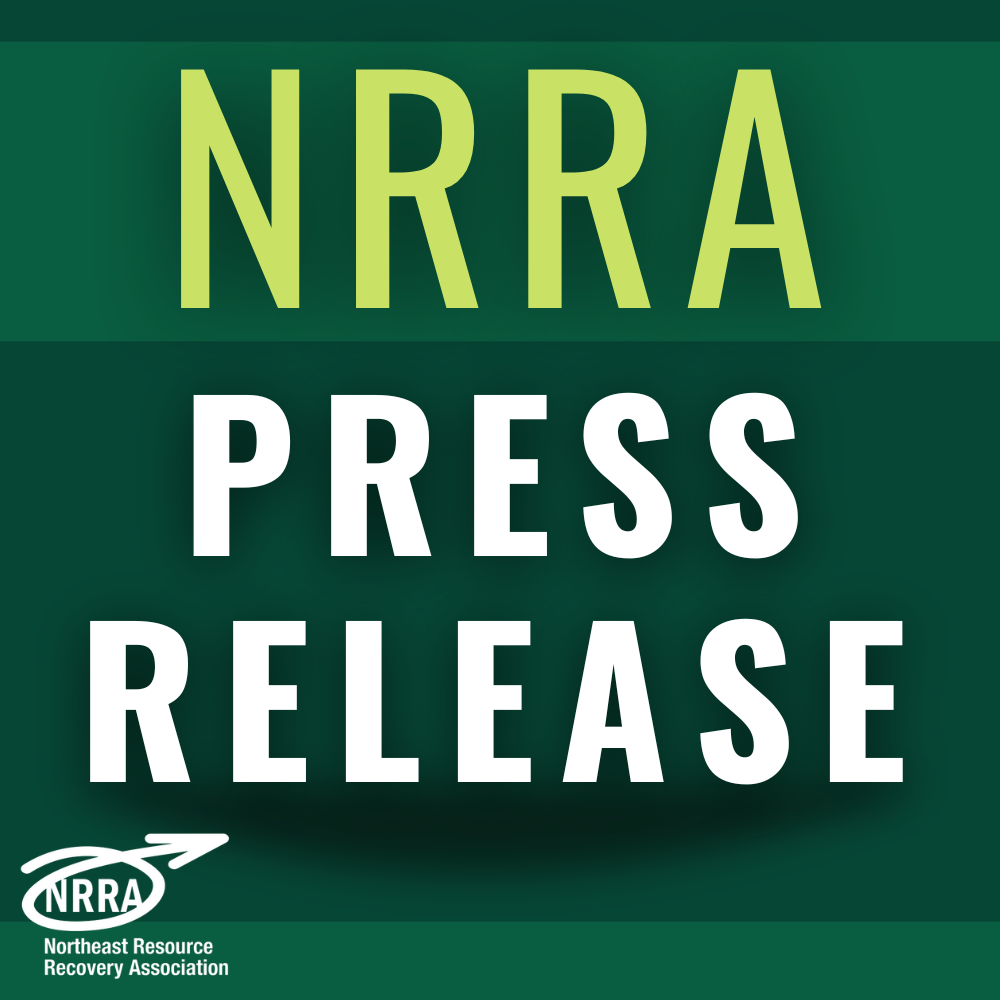Press Release: NRRA’s completed USDA Grant brings valuable new recycling resources for NH residents, towns, and transfer station operators
FOR IMMEDIATE RELEASE
EPSOM, NH: The Northeast Resource Recovery Association (NRRA), the largest and oldest cooperative-model recycling nonprofit in the United States, enables communities to manage their own recycling programs, in part, through its recycling education and technical assistance work. This fall, NRRA successfully wrapped up its Recycling Tools of the Trade project, made possible by a grant from the Rural Utilities Service, United States Department of Agriculture.
New Hampshire law states that each town must “provide a facility or assure access to another approved solid waste facility for its residents,” regardless of how big – or small – a town may be. NRRA partners with 85% of all towns and cities in NH, working primarily with small, rural municipalities. Through the Recycling Tools of the Trade project, NRRA launched several new recycling and solid waste diversion tools and resources with small towns in mind.
A new 30-minute Recycling 101 presentation shares both the big picture of solid waste and recycling across the country and the local view of recycling in New Hampshire; addresses what happens to materials once they are recycled; looks at the unique challenges to solid waste diversion and recycling in New Hampshire, as well as possible solutions; and offers next steps residents can take to make a difference. The presentation is free and available as a video or downloadable PowerPoint presentation. Said one NRRA Member Town Waste Management Advisory Committee Member after hosting a recycling event with the Recycling 101 presentation video:
“Thank you for the terrific Recycling 101 PowerPoint. We presented it at the Durham Library last week and are thinking of an encore performance. Great response, great discussion, exactly the information our audience was seeking."
The Recycling Tools of the Trade project also launched six new Waste Diversion and Reduction Toolkits designed for transfer station operators and municipal decisionmakers. Covering topics on which NRRA routinely provides technical assistance and education, toolkits included: Battery diversion, transfer station Scales, Recycling Education, Municipal Composting, Full Cost Accounting, and the Pay As You Throw model. The toolkits include videos, hands-on tools and presentations, and resources for residents, making them more accessible to a greater number of people.
NRRA worked with The Recycling Partnership to create a recycling pamphlet template that NRRA can customize for individual towns’ recycling programs. The postcard-size recycling pamphlets can be handed out to patrons at the transfer station or recycling center, or mailed to residents. The postcards help educate new or short-term residents on the community's recycling program and act as a good reminder for long-term residents on what can be recycled. Resident education is a challenge all transfer stations struggle with, often lacking the time or staffing needed to create effective recycling education pieces for their residents.
Finally, the Power of Recycling Partnerships Story Map was designed to help towns better understand the formal and informal partnerships that help strengthen recycling across New Hampshire. Partnerships allow towns to share economic resources and achieve a greater economy of scale than they would be able to amass on their own.
These Recycling and Waste Reduction tools and resources were provided to rural communities in New Hampshire with the lowest incomes. With the USDA grant support, NRRA was able to offer these valuable technical assistance and educational services for free, benefiting the New Hampshire communities that can least afford them in already difficult economic times, when communities receive limited state support and face budget challenges. After an NRRA Member Operations & Marketing meeting where these resources were shared, one transfer station operator noted:
“We are grateful for the abundance of resources available from NRRA to aid in operations of our facility. Thank you for bringing light to some of the more immediately available assistance. We will make use of them right away."
